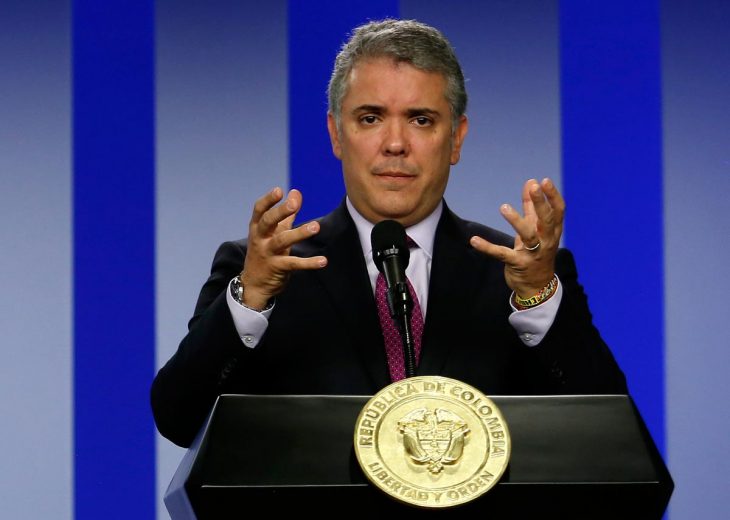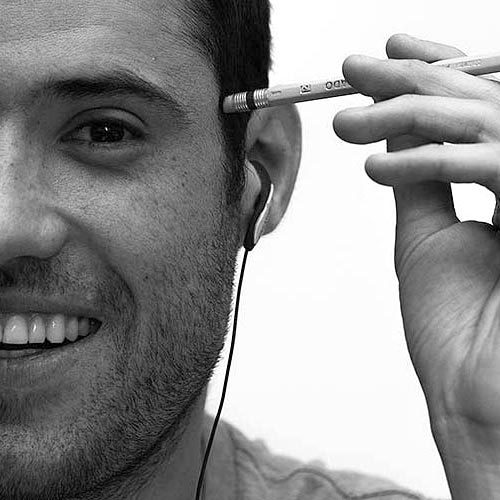Colombian President Iván Duque is nearing his first anniversary in office, unable so far to keep his campaign promise of introducing significant amendments to the 2016 peace agreement with the former Revolutionary Armed Forces of Colombia (FARC).
His attempts to modify the accord and especially its transitional justice system have so far resulted in a series of congressional and legal setbacks that have undermined his political leadership while creating uncertainty among former combatants and rural communities expecting a peace dividend.
They have, however, also proven costly to Colombia’s new special peace tribunal. Caught in the middle of political partisanship and court challenges, the Special Jurisdiction for Peace – or JEP, as it is locally known – has been unable to properly function and begin showing results in its mission to investigate and prosecute the perpetrators of war crimes committed during the country’s 52-year-long armed conflict.
The government’s will to undermine transitional justice
Duque, a former lawmaker and political heir to former president Alvaro Uribe, has vowed to implement the peace deal, while at the same time pledging to introduce modifications that will make it more palatable to the 50.2% of Colombians who rejected the original deal in a 2016 plebiscite.
His government has already begun planning some of these changes, including once again prioritising the aerial spraying of illicit coca crops with glyphosate (a strategy that former President Juan Manuel Santos had suspended on account of concerns over its impact on public health and the environment) and returning to Uribe’s narrative that Colombia never suffered an internal armed conflict but a terrorist threat.
The brunt of his criticisms, however, have been aimed at the transitional justice. “We want a peace that genuinely guarantees truth, justice, reparation and non-recurrence,” he has stated repeatedly, referring to the four rights of Colombia’s 8.8 million victims that the peace accord seeks to satisfy.
Duque’s most ambitious wager was soundly defeated in Congress and questioned by the country’s top court over the past three months.
In March, President Duque wielded his veto power and presented six objections to a law governing the operation of Colombia’s JEP, even though the bill had already been approved in Congress and had been reviewed by the Constitutional Court.
One of his suggested amendments, that lawmakers revise the transitional justice system’s mission to prosecute only those most responsible for war crimes, struck at the heart of the peace deal.
The logic of the JEP model
The reason was that Colombia’s innovative transitional justice system, instead of privileging some victims’ rights over others, chose to try to satisfy all of them. Thanks to this formula, former FARC commanders – as well as military who committed war crimes – may receive more lenient sentences for serious and representative crimes, such as murder and kidnapping, if – and only if – they meet three conditions: acknowledging their responsibility, telling the truth, and personally helping redress victims. With this model, Colombia seeks to fulfil its legal obligations as well as guarantee victims’ rights.
However, it can only work if the JEP is allowed to concentrate its efforts on those responsible of the most serious crimes, in practice choosing not to prosecute a number of other cases and persons. The reasoning behind the idea of introducing selection criteria is to regulate prosecutorial discretion and to avoid the special tribunal from collapsing on account of the gigantic legacy of atrocities left by half a century of violence.
Duque’s first attempt falls flat
Duque’s proposed modifications – which he claimed would “improve” the peace deal – were met with scepticism in Colombia’s Congress, where his party the Democratic Centre, led by Uribe, does not hold a majority.
The lower house overwhelmingly rejected his suggested changes in a 110-44 vote in April, dealing the government a hefty defeat and proving that the political parties that had backed former president Santos’s agreement were still inclined to defend it. Three weeks later there was a similar outcome in the upper house, where a defeat by one vote effectively buried Duque’s objections.
The Constitutional Court upheld Congress’s decision, something that didn’t come as a surprise given that it had already considered all of the bill’s provisions to be constitutional. In the end, Duque signed it in June, amid a general feeling that the country had been embroiled in five months of fruitless political bickering.
Duque’s back-up plan
Just as his objections were struck down, Duque’s government submitted two new draft bills in Congress that once again dealt with transitional justice issues.
This time there was a stark difference: none of the bills seek to modify the peace agreement signed with the FARC, but rather aim to create new legal standards going forward.
The first project would ban cases of sexual violence against children from ever falling under the jurisdiction of any transitional justice system or receiving more lenient sanctions. The second one would bar three crimes – drug trafficking, kidnapping and sexual violence – from ever being considered as politically motivated, making it impossible for any person responsible of them to receive an amnesty or a pardon in the context of a peace negotiation.
Something else changed: this time the government’s bills stand a good chance of being approved by Congress. Both of them have secured the backing of several political parties who had rejected Duque’s objections and have already cleared half of the debates needed to become law.
Bills for the future or the past?
The effect these two bills would have if they become law is less clear. Since they cannot be applied retroactively, they don’t modify the peace deal or the work of the Special Jurisdiction for Peace. To begin with, their spirit is already present in the peace agreement. After the failed plebiscite in October 2016 and ensuing renegotiation with opponents of the peace deal, a second and definitive peace accord included many of the significant changes and clarifications they put forward. One of them was stating explicitly that drug trafficking would be considered an ordinary crime (and thus be excluded from the transitional justice) if there was evidence it had been carried out for personal gain and not to finance the guerrilla. Likewise, the kidnapping of civilians has always been considered a serious crime in Colombia and has therefore never been privy to an amnesty or a pardon.
Moreover, the peace deal clearly states that any crimes committed by former FARC rebels after December 2016 shall not be investigated by the JEP but by the ordinary justice system, and in no case will warrant any special criminal treatment.
These are things Duque knows as a lawyer and former senator. The President was in fact one of those renegotiating the peace deal on behalf of the ‘No’ camp, as were his Vice-President Marta Lucía Ramírez, his Minister of Foreign Affairs Carlos Holmes Trujillo, his national security advisor Rafael Guarín, peace commissioner Miguel Ceballos, and Duque’s political godfather Alvaro Uribe.
A political gambit
The larger question looming on the horizon is what does the Duque administration gain with laws that don’t allow him to modify the peace agreement, neither improving it nor widening the consensus around it. The answer seems to be more about politics than criminal justice.
Colombia still has one illegal armed group, but negotiations with this guerrilla – the National Liberation Army (ELN) – have gone nowhere. Talks in Quito launched in early 2017 stalled under Santos’s administration and were broken off by Duque following the bombing in January of a police academy in Bogota. The government has argued that any eventual peace deal with the ELN would be subject to these new rules.
However, Duque has shown no interest in holding serious talks with ELN. If there ever was one, in any case the Constitution would need to be amended in order for their crimes to fall under the jurisdiction of the JEP or any new transitional justice system.
Legal realities aside, these bills allow Duque and his party to play an entirely different ballgame. With local elections of mayors and governors slated for October, passage of these bills in Congress allows them to persuade their voters that they are sticking to their promise of amending the agreement and being tough on crime and impunity.
They also allow the President and the Democratic Centre to claim they defend the rights of victims of atrocities, who were largely seen as supportive of a peace deal and Santos’ 2011 law that recognized them legally. Over the past few months, many lawmakers in Duque’s party have given a voice to the women of the White Rose Corporation, a group of former FARC combatants who claim to have been sexually abused by their superiors and are demanding harsher sentences.
The JEP at a crossroads
Even though polls punished Duque and his government over the political fracas surrounding the failed modifications of the peace deal, the transitional justice system has also suffered the political cost of it.
The signature of the bill governing the Special Jurisdiction for Peace allowed it to begin operating more effectively, but it continues to be the object of political wrangling. The controversy over Jesus Santrich, a former FARC commander caught apparently planning a drug operation after the peace deal was signed and sought in extradition by the US, who ended up fleeing justice last month, further eroded the tribunal’s image among ordinary Colombians.
Simultaneously, a group of victims began gathering the 1,8 million signatures needed to call a referendum in which Colombians would be able to vote on whether to abolish the JEP. Although this outcome is unlikely, Duque’s party is actively supporting the idea and using it as a campaign message.
All of this means that as Duque attempts to find his footing, the special tribunal is also struggling to build the social legitimacy needed to help Colombia heal the wounds left by such a long conflict.







